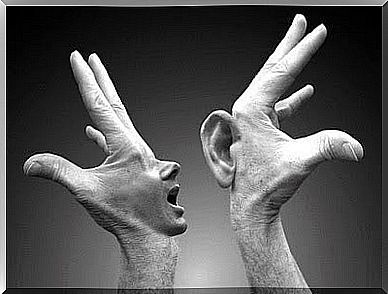Praise Sleeps, Criticism Teaches

Receiving criticism is as difficult as receiving praise. In fact, there are people who don’t feel comfortable at all when they hear something positive said. This is largely due to our culture: we have been educated to the need, to the idea that everything must always be done well – without, however, the merit being acknowledged.
But there is more. Allowing praise and criticism to exert a strong power on our self-esteem can be very dangerous, as it means putting ourselves at the mercy of others. When praised, the message of admiration can be so confusing that it triggers a sense of self-admiration so great that it puts us in a state of “drunkenness”. On the other hand, when we receive destructive criticism, the opposite happens, that is, we tend to develop a morbid tendency to despise ourselves, to take offense.
Know that in any aspect of life you can win and lose, what matters is the nobility of the resources used. What really matters is the dignity with which we undertake our journey towards achieving the objectives. Accepting constructive criticism from those around us can help us adapt better to various situations, vice versa praise can debilitate us to the point of reducing our efforts and our qualities.

Criticism is inevitable
The evaluation process is part of the thinking of each human being. Our culture has educated us to pay more attention to the negative than the positive. We notice defects and problems more easily than qualities and opportunities.
Each of us reacts to criticism in a distinct way. We tend to believe that this varies according to whether the criticism is constructive or destructive, but this is not always the case. Sometimes, the exact same criticism uttered by two different people can generate totally opposite responses and emotions.
Sometimes the way we collect a criticism does not depend so much on what they tell us, rather on what we ourselves think about it – regardless of the criticism and its author, the difference is made by the one who receives it. The difference lies in the importance and interpretation we give to criticism, as much to the gestures and words as to the person who made them.

How do you benefit from praise?
In order for praise not to harm others by causing them to fall into the trap of vanity, it is important to praise the activity and conduct in concrete, not the person himself. How we praise can influence the thinking of others and, consequently, their propensity to accept challenges, to have perseverance and to achieve academic success. There are two particular types of mentality: fixed and growing.
On the other hand, if it is we who are the object of praise, we must learn to consider it a positive component, capable of confirming a job well done and showing us that the chosen path is the correct one. Pointing out this aspect, some authors affirm that we live to feel affirmed as people, and in some of us it is more than evident. Furthermore, for some people, praise can become the basis of pride which, in excessive quantities, can distort the reality in which one lives and the meaning one gives to one’s gestures.
To empower someone with praise, the best thing to do is to formulate it in reference to concrete facts or results. It will be of little use to generalize with phrases such as “you do it very well” or “you are very intelligent”. It is better to say “I liked how you solved that particular problem” or “you worked very well to reach your goal, even though you did not like the task”.

While highlighting only the negative aspects can cause frustration, highlighting only the positive ones can lead others to rest on their laurels. The problem, for most of us, is that we prefer to be ruined by praise rather than saved by criticism.









